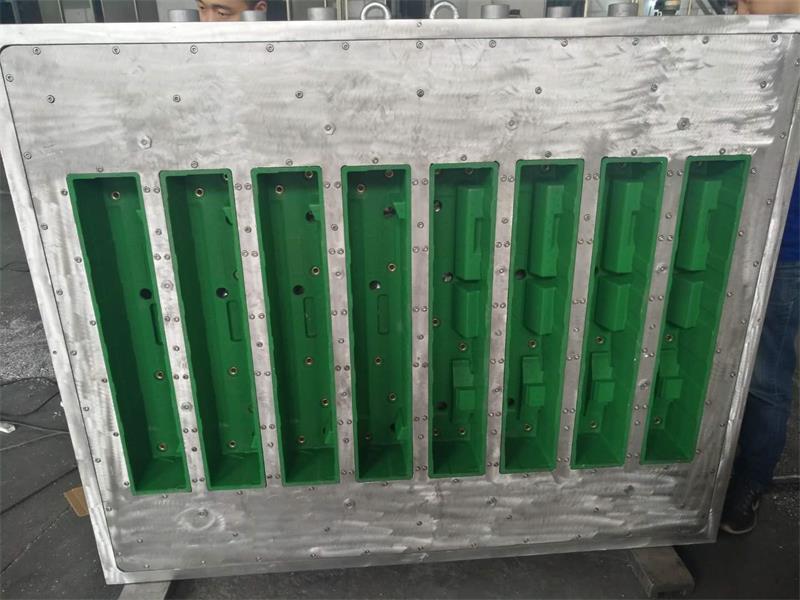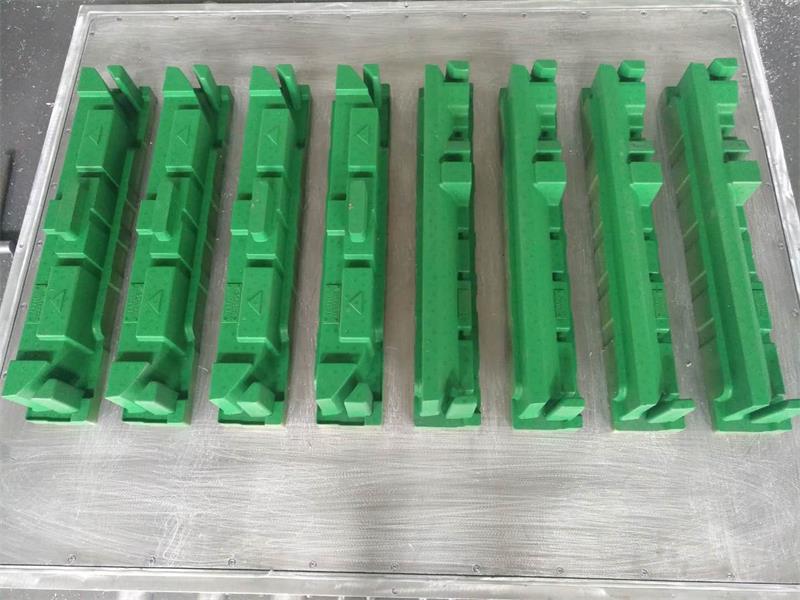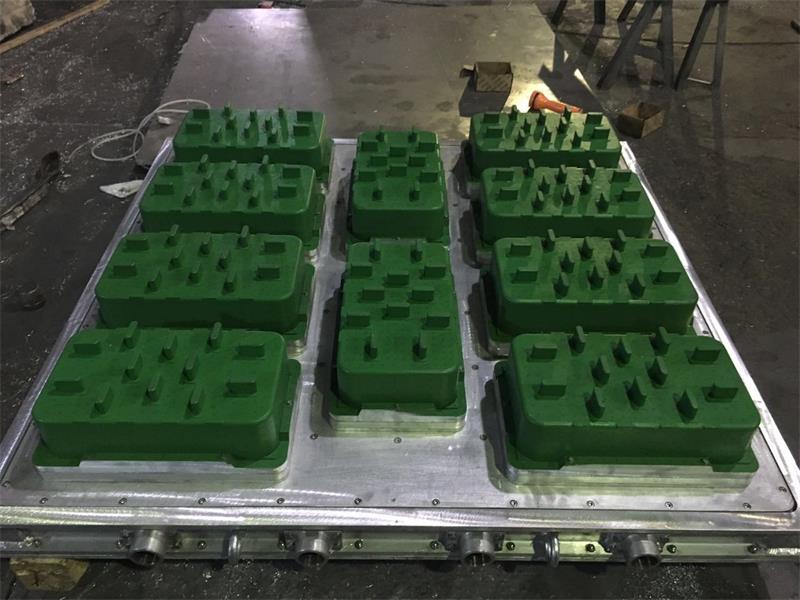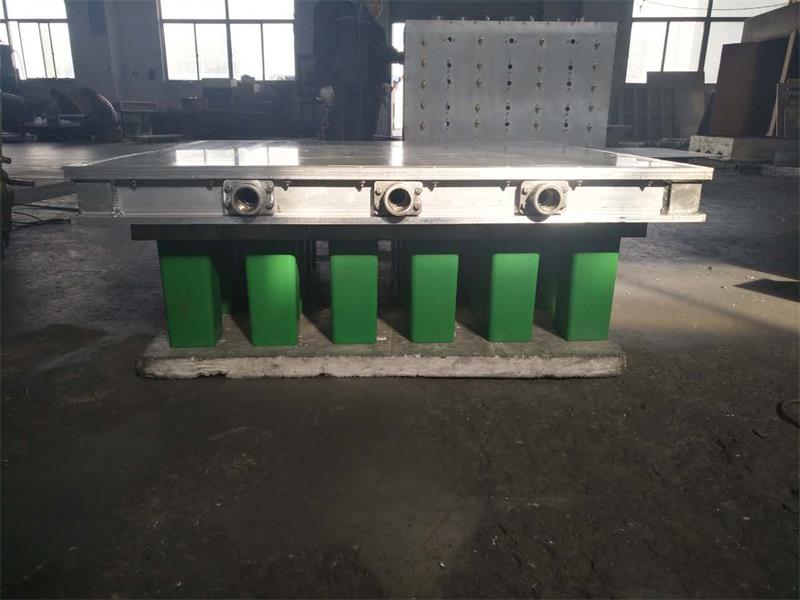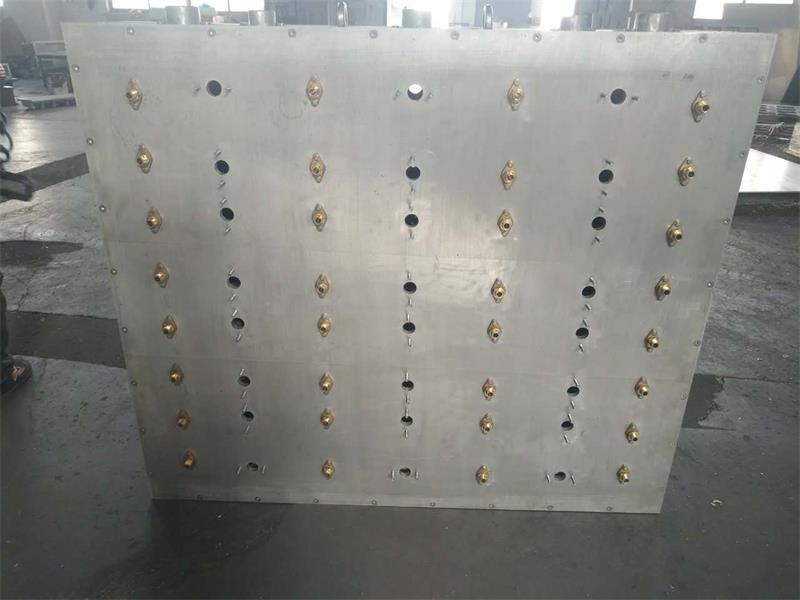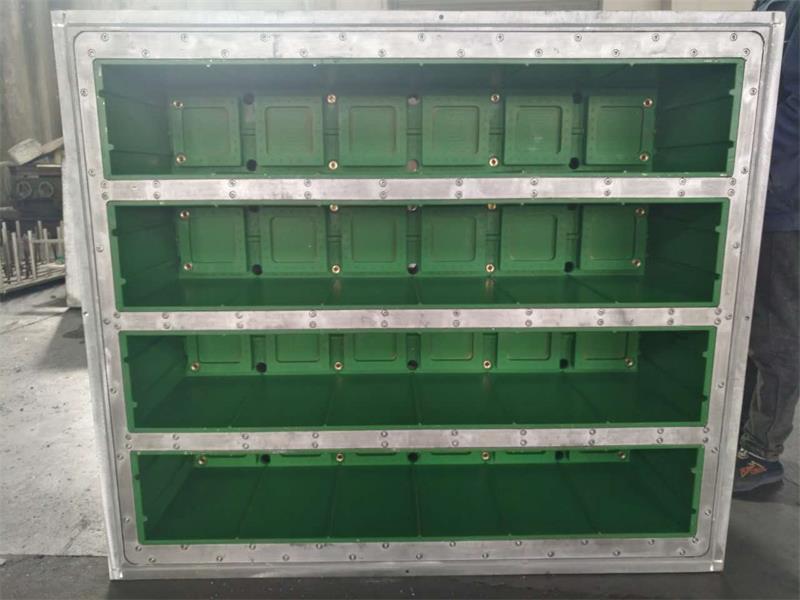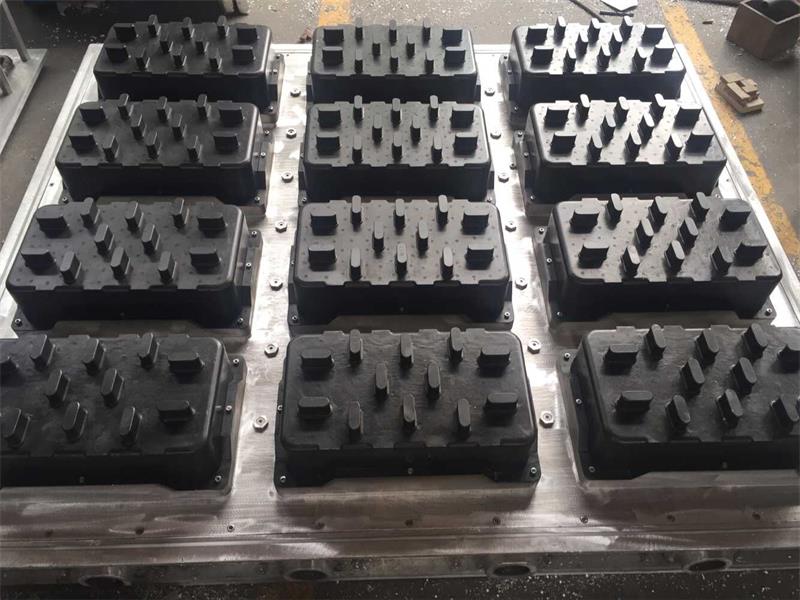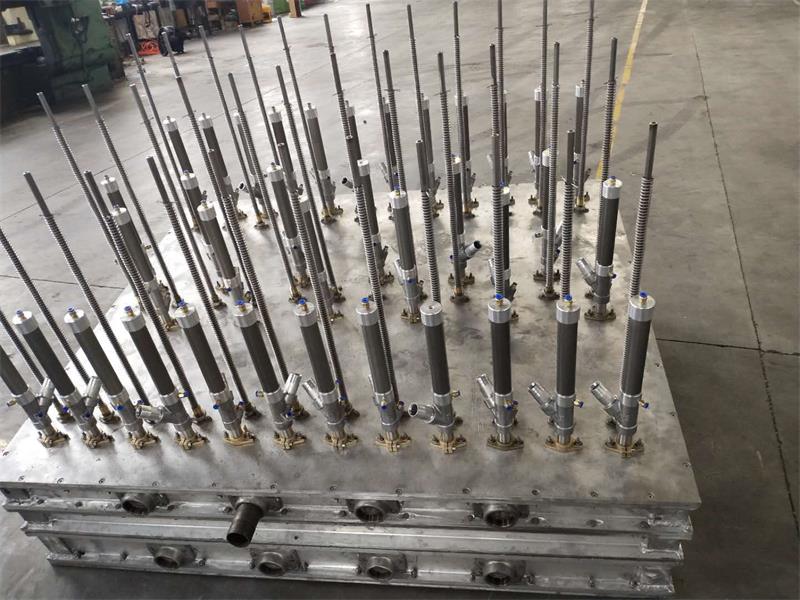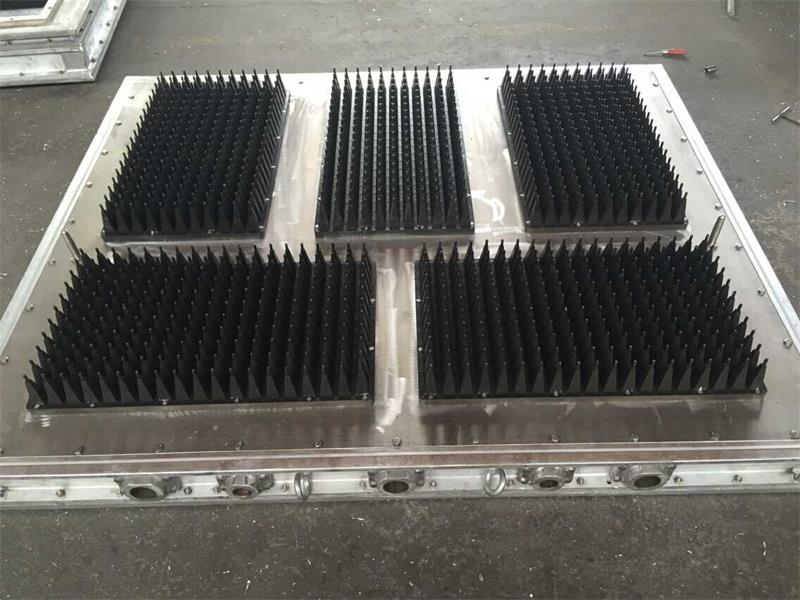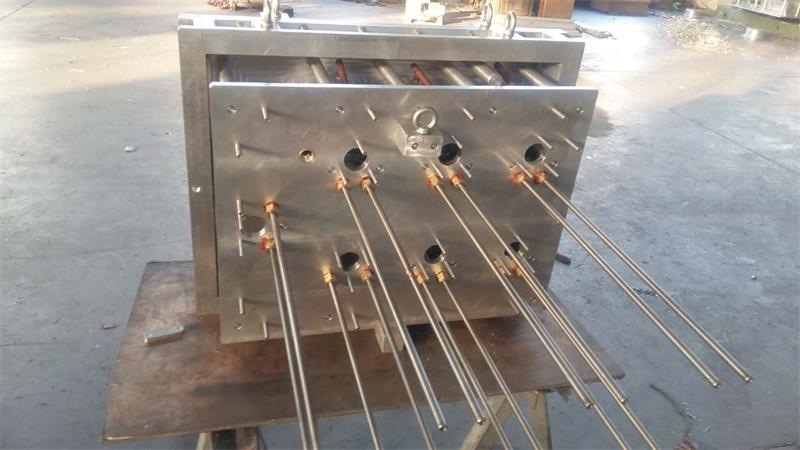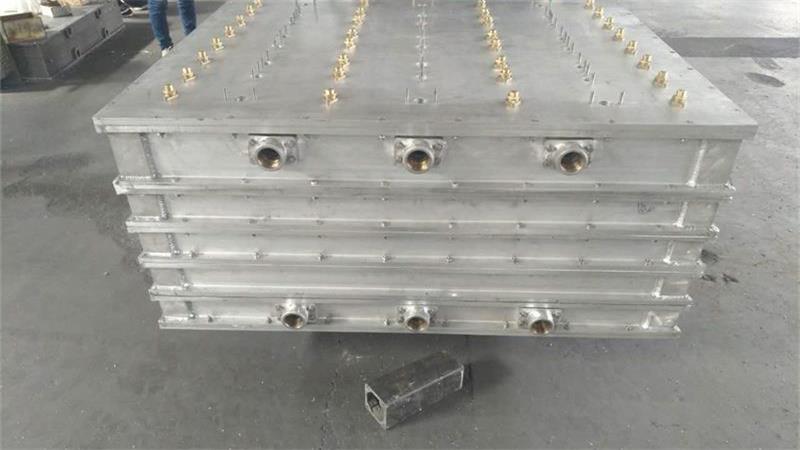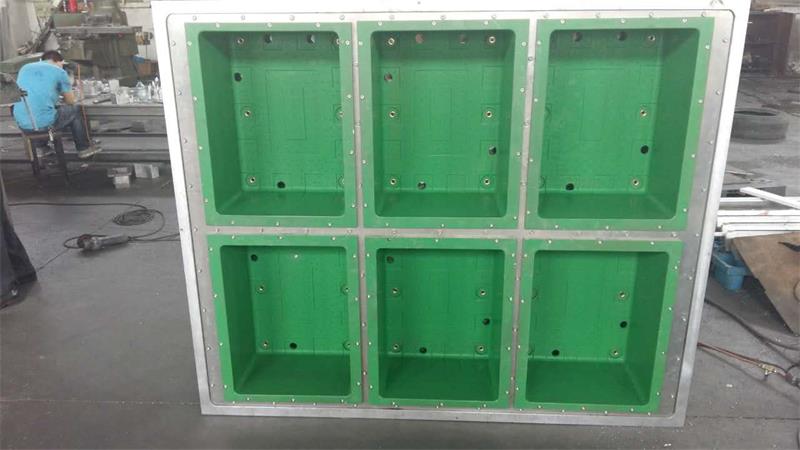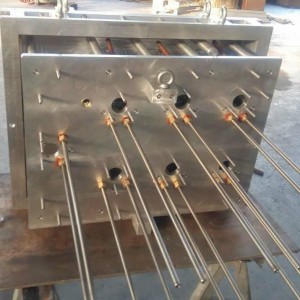China Manufacturer High-Quality Styrofoam Mould
| Main Parameters | Material: High-Quality Aluminum Alloy |
|---|---|
| Frame Material | Extruded Aluminum Alloy Profile |
| Coating | Teflon Coated for Easy Demoulding |
| Processing | Fully Processed by CNC Machines |
| Tolerance | Within 1mm |
| Delivery Time | 25-40 Days |
| Packing | Plywood Box |
| Common Specifications | Steam Chamber: 1200*1000mm, 1400*1200mm, 1600*1350mm, 1750*1450mm |
|---|---|
| Mould Size | 1120*920mm, 1320*1120mm, 1520*1270mm, 1670*1370mm |
| Patterning | Wood or PU by CNC |
| Machining | Fully CNC |
| Aluminum Alloy Plate Thickness | 15mm |
Product Manufacturing Process
The manufacturing process of our Styrofoam moulds involves several precise steps to ensure high quality and durability. Initially, we select high-quality aluminum ingots, which are then extruded to form the frame of the mould. The aluminium plates used are of 15mm thickness, ensuring robustness. These plates are fully processed using CNC machines to achieve a tolerance within 1mm, guaranteeing precise dimensions. All cavities and cores are coated with Teflon to ensure easy demoulding. Our engineers, who have over 20 years of experience, oversee each step to maintain strict quality control, from patterning and casting to machining and assembling. This meticulous process ensures that our Styrofoam moulds are superior in quality and performance.
Product Application Scenarios
Our Styrofoam moulds find application in various industries due to their versatility and ease of use. In the construction industry, they are utilized for creating intricate architectural features and decorative elements, given their lightweight and cost-effective nature. The manufacturing sector employs these moulds for lost foam casting, which allows for the production of complex geometries in metalworking at reduced costs. Artists and sculptors benefit from the ease with which Styrofoam can be cut and shaped, enabling the creation of detailed sculptures and models. Additionally, engineers and designers use Styrofoam moulds for developing packaging solutions and prototypes, leveraging its cushioning properties for protecting delicate items. This wide range of applications underscores the practicality and efficiency of our Styrofoam moulds across different fields.
Product After-Sales Service
We provide comprehensive after-sales support, including installation guidance, troubleshooting, and regular maintenance advice. Our technical team is available around the clock to assist with any issues that may arise, ensuring minimal downtime and optimal performance of our Styrofoam moulds.
Product Transportation
Our Styrofoam moulds are securely packed in plywood boxes to prevent damage during transit. We coordinate with reputable logistics providers to ensure timely and safe delivery to our clients, both domestically and internationally.
Product Advantages
- High-Quality Aluminum Material
- Fully Processed by CNC Machines
- Teflon Coated for Easy Demoulding
- Experienced Engineers and Strict Quality Control
- Wide Application Range
- Custom Design Capabilities
Product FAQs
- Q: What materials are your Styrofoam moulds made from?
A: Our Styrofoam moulds are made from high-quality aluminum material, with the frame constructed from extruded aluminum alloy profiles for added strength and durability.
- Q: How precise are your Styrofoam moulds?
A: Our moulds are fully processed by CNC machines, achieving a tolerance within 1mm to ensure precise dimensions and high-quality output.
- Q: Can you custom make moulds as per client requirements?
A: Yes, we offer custom design services to create moulds that meet specific client requirements. Our engineers can convert customer samples to CAD or 3D drawings for accurate production.
- Q: What types of applications are suitable for your Styrofoam moulds?
A: Our moulds are suitable for a wide range of applications including construction, lost foam casting, art and sculpture, packaging, and prototyping.
- Q: How long does it take to deliver a mould?
A: Delivery time varies from 25 to 40 days, depending on the complexity of the mould and current order volume.
- Q: How do you ensure the quality of your moulds?
A: We maintain stringent quality control at all stages, including patterning, casting, machining, assembling, and Teflon coating. Our engineers, with over 20 years of experience, oversee the entire production process.
- Q: What is the thickness of the aluminum plates used in your moulds?
A: We use aluminum alloy plates that are 15mm thick to ensure robustness and durability of the moulds.
- Q: Do your moulds come with a warranty?
A: Yes, we offer a warranty on our moulds. Details vary based on the specific product and application, so please contact our sales team for more information.
- Q: Can your moulds be reused?
A: Depending on the application, some of our moulds can be reused multiple times with proper handling and care.
- Q: What are the packing details for transportation?
A: Our Styrofoam moulds are packed in sturdy plywood boxes to protect them during transit and ensure they arrive in perfect condition.
Product Hot Topics
The Environmental Impact of Styrofoam Moulds
As the push for environmental sustainability grows, the impact of Styrofoam on the environment is a significant concern. While Styrofoam moulds are cost-effective and versatile, their non-biodegradable nature poses environmental challenges. Recycling options for Styrofoam are not as widespread, making disposal a concern. However, innovations in biodegradable alternatives and eco-friendly materials are being explored. The industry is keen to balance the benefits of Styrofoam moulds with environmental responsibility. Manufacturers are also looking at ways to improve the recyclability and reduce the ecological footprint of these moulds.Advancements in CNC Technology for Mould Manufacturing
CNC technology has revolutionized the manufacturing of Styrofoam moulds. With precise control and high accuracy, CNC machining ensures that moulds meet exact specifications. This technology reduces production time and material waste, making the manufacturing process more efficient and cost-effective. The capability to create intricate and complex designs with CNC machines has expanded the application of Styrofoam moulds in various industries. As CNC technology continues to advance, we expect further improvements in the quality and versatility of moulds.Custom Design Capabilities in Styrofoam Mould Manufacturing
One of the key advantages of Styrofoam moulds is their custom design capability. Manufacturers can convert customer samples into CAD or 3D drawings, allowing for precise and tailored mould creation. This flexibility is critical for industries requiring specific shapes and dimensions, such as packaging, construction, and art. Custom design ensures that the moulds meet the exact needs of the application, improving functionality and efficiency. This capability also allows for rapid prototyping and testing of new products.Cost-Effectiveness of Styrofoam Moulds in Industrial Applications
Styrofoam moulds are a cost-effective solution for many industrial applications. Compared to metal or rubber moulds, Styrofoam is significantly cheaper, reducing the overall production costs. This affordability does not compromise quality, as Styrofoam moulds can achieve precise and detailed designs. The cost savings are particularly beneficial for projects requiring large quantities of moulds or for prototype development. Industries can allocate resources more efficiently, investing in other aspects of production while still maintaining high standards with Styrofoam moulds.Versatility of Styrofoam Moulds in Different Industries
The versatility of Styrofoam moulds makes them suitable for a wide range of industries. In construction, they create intricate architectural elements. In manufacturing, they are used for lost foam casting to produce complex metal parts. Artists and sculptors appreciate their ease of shaping for detailed works. Engineers and designers use them for developing packaging solutions and prototypes. This wide application range demonstrates the flexibility and adaptability of Styrofoam moulds, making them a valuable tool across various sectors.Durability and Robustness of Aluminum Alloy Moulds
The use of high-quality aluminum alloy in Styrofoam moulds ensures durability and robustness. Aluminum's strength and resistance to wear and tear make it an ideal material for moulds that need to withstand repeated use. The addition of extruded aluminum alloy profiles for the frame further enhances the structural integrity of the moulds. This durability translates to longer-lasting moulds, reducing the need for frequent replacements and providing a cost-effective solution for long-term use.Improving Production Efficiency with Styrofoam Moulds
Styrofoam moulds contribute to improving production efficiency in several ways. Their lightweight nature makes them easy to handle, reducing labor efforts and transportation costs. The ease of cutting and shaping Styrofoam accelerates the mould creation process, leading to quicker turnaround times. CNC processing ensures precise dimensions, minimizing errors and rework. These factors collectively enhance the overall efficiency of production processes, allowing manufacturers to meet tight deadlines and deliver high-quality products consistently.Challenges and Solutions in Styrofoam Mould Manufacturing
While Styrofoam moulds offer numerous advantages, their manufacturing process does face some challenges. Ensuring structural integrity and achieving a smooth surface finish can be difficult. However, advances in CNC technology and coating materials like Teflon have addressed many of these issues. Maintaining strict quality control throughout the manufacturing process also helps in overcoming potential challenges. Continuous innovation and improvement in techniques and materials are key to maintaining the high standards of Styrofoam mould production.The Role of Engineers in Mould Design and Manufacturing
Engineers play a crucial role in the design and manufacturing of Styrofoam moulds. Their expertise in materials science, machining processes, and design principles ensures that the moulds meet high standards of quality and performance. Experienced engineers can create complex and precise designs, converting customer requirements into functional moulds. Their role in overseeing the manufacturing process and implementing strict quality control measures is vital for delivering reliable and durable moulds. The success of Styrofoam mould projects is heavily dependent on the skills and knowledge of the engineering team.Sustainable Alternatives to Traditional Styrofoam Moulds
With growing environmental concerns, the search for sustainable alternatives to traditional Styrofoam moulds is gaining momentum. Researchers are exploring biodegradable foams and eco-friendly materials that can offer the same advantages without the environmental drawbacks. These alternatives aim to reduce the ecological footprint of mould manufacturing and usage. While Styrofoam remains popular due to its cost-effectiveness and versatility, the industry is increasingly adopting sustainable practices and materials. The transition to more eco-friendly options is a positive step towards balancing industrial needs with environmental responsibility.
Image Description
